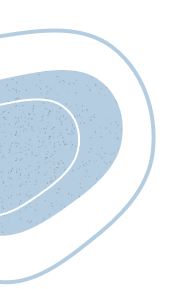Tools & Calculators
Affordability Calculator
Find out how much house you can afford. See how much your monthly payment could be and find homes that fit your budget.
Are you a first-time homebuyer?
If yes, you can have a mortgage amortization period of 30 years.
$
/year
Before taxes. Include any co-buyer's income.
$
/month
Obligations like loan and debt payments or alimony, but not costs like groceries or utilities.
Down payment
13.5%
$
The cash you have available to pay upfront when you close
Looking to buy a condo?
Monthly condo fees should be considered when calculating affordability
You need to find a house you can afford
Buying your first home is core life milestone, especially when you knew it was meant to be yours the first time you saw it. Here's an honest opinion: it can be tough to separate emotion from wisdom when it comes to buying a home. You start picturing holiday dinners and lazy Sunday mornings with your loved ones, you imagine your kids playing in that backyard, and the dream house you've been tracking becomes less about square footage and more about your future happiness. This is dangerous territory when making probably the largest financial decision in your life.
We all want to live in a home that makes us glad to get back at the end of a long day. But too many people end up house poor which means they're trapped by a mortgage that looked manageable on paper but devours their paycheque every month.
Recessions happen. Job losses happen. Once in a century pandemics happen more often than you'd think. When you buy a home, you're signing up for more than just simple monthly payments: repairs, taxes, insurance, and whatever financial curveballs life decides to throw at you.
How to calculate annual income for your household
To determine how much mortgage and housing-related costs you can afford to pay each month, start by looking at how much you earn each year before taxes. Consider all your earnings for the year, which could include salary, wages, tips, commission, and any other source of personal income. If you plan on purchasing a home with a spouse or a partner that has an income, this will also contribute to the monthly mortgage, so make sure to include that as well into your annual household income. Out affordability calculator will then take the annual income and divide by 12 to determine your monthly income.
The 28% rule
The 28% rule is one of the most common housing expenditure formulas. It says you should spend 28% or less of your gross monthly income on housing-related expenses.
Let's say you earn $75,000 per year or $6,250 per month. That means your total housing costs should be no more than $1,750 ($6,250 x 0.28 = $1,750). This total should include:
Mortgage principal and interest payment
Property taxes
Homeowner's insurance
Condo fees, if applicable
Mortgage lenders refer to this as a debt-to-income ratios (DTIs) used to determine whether you can afford to purchase a home.
The 36% rule
The second debt-to-income ratio is formally called the back-end ratio and includes your total monthly housing costs as well as any existing debt payments and obligations, including:
Housing (including principal, interest, property taxes, homeowner's insurance)
Loan payments (like auto, boat, and personal loans)
Child support
Spousal support
Credit card debt
Applying the 36% rule to the $6,250-per-month scenario, your total monthly payments should not amount to more than $2,250 ($6,250 x 0.36 = $2,250). Some mortgage lenders will allow a higher ratios on a case-by-case basis, but you should generally make sure to not over-stretch your finances.
What is a property tax?
When calculating the home price you can afford for, property taxes must be added into the housing budget because they directly affect the recurring costs of homeownership. You’ll need to pay property taxes to the municipal government in instalments spread throughout the year directly, or via your mortgage payments if your lender collects them on your behalf. Property tax is based on a percentage of your home’s assessed value, which is set by the Municipal Property Assessment Corporation (MPAC). Each municipality is different and sets its own tax rate, so your total cost depends on both your property’s value and say, the City of Toronto’s property tax rate.
In 2025, the residential property tax rate in Toronto is approximately 0.7056033%. That means if your home is assessed at $800,000, you’d owe roughly $5,645 in property taxes for the year.
Future homebuyers also overlook the requirement to reimburse the seller for taxes they’ve already paid, which becomes part of your closing costs. Because assessments are updated periodically, your property tax bill may increase or decrease depending on changes in your home’s assessed value or shifts in municipal tax rates.










